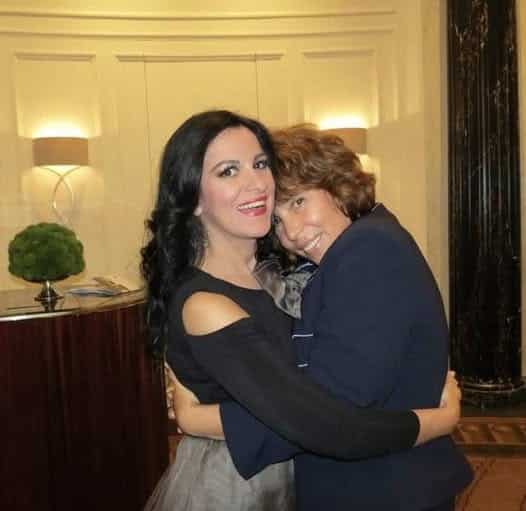Lincoln Center bombshell steals Carnegie’s show
NewsA couple of hours after Clive Gillinson rolled out his Latino season, Lincoln Center’s chief Henry Timms announced his abrupt departure.
Timms, 47, steered Lincoln Center through Covid closure, accelerating the completion of David Geffen Hall. On the debit side, he reduced classical budgets, replacing guest orchestras with pop, hip-hop and sundry other attractions. His successor will inherit a balanced budget and a healthy endowment of $280 million.
Who will succeed? First names in the hat are ex-NY Phil chief Matthew Van Besien and outgoing Lucerne Fest chief Michael Haefliger. Neither excites much local support.
More intriguing is the prospect of both Lincoln and Carnegie out hunting at the same time. Gillinson is 78 next month and probably on his last term.
Certainly his new season has been rained on by Timms’s peculiar timing.






Most New Yorkers who support the arts and also Lincoln Center company ticket supporters never heard of Timms. He will not be missed, as they never knew he was there.
Timms may not have had a huge public profile, but his dismantling of Lincoln Center presentations of any value was most certainly noticed by those of us that attend events there. Let’s hope they do better this round.
Even Alex Ross, in ‘The New Yorker’ a relentless cheerleader for the new and trendy, wrote a polite but firm article attacking the programming policies of Lincoln Center, in the context of the decimation of the long-lived Mostly Mozart summer programming. Timms came from the 92nd Street Y, which has a distinguished classical concert series, albeit one that has been somewhat contracted in recent years. But the ‘Y’ does so much more than arts programming, which might have made Timms a good fit there, but at Lincoln Center not so much.
Under his watch at Lincoln Center, Mostly Mozart has been eliminated, and the loyal Louis Langree is out the door. The substitute, woke, programming was just announced this week. The ‘Great Performers’ series, which presented visiting classical artists (including yearly visits by the LSO) has been eliminated too. It tells us something that Timms is going to work for an international Public Relations firm, something closer to his talents, if he has any, and interests. Although we don’t know who we are going to get, members of the New York classical music audience should regard this as welcome news.
What you wrote, as well as what ‘Save the MET’ wrote, (above) says it all, I think. I don’t have any objection to ‘woke’ programming as long as it doesn’t require dropping more ‘traditional’ classical music. There most certainly is room under the sun for all. Getting rid of, say, Great Performers and/or other longer-established Lincoln Center events is a way of setting up an artificial conflict between what has been tried and true and what is new and not yet well-known. That’s a false dichotomy if ever there was one. Whose agenda is served by that? Certainly not mine as I have been a subscriber to the NY Phil, Great Performers, and sometimes Mostly Mozart as well. Good to see Mr. Timms has a new position to go to. Here’s hoping his successor will be more imaginative, and open-minded, and understands that for an organization such as Lincoln Center, education must include conserving the past they created as well as exploring the present and not as well-known past they didn’t explore in years gone by.
“There most certainly is room under the sun for all.”
Increasingly, this is not the case.
I find the offerings by Carnegie Hall and Lincoln Center for next season depressing. Both offer a lot of the usual warhorses (Haydn, Mozart, Beethoven, Schubert, Schumann, etc.) with a sprinkling of new pieces that won’t likely be heard again after their world premieres. The great 20th century masters are conspicuous by their near total absence.
This is what’s so frustrating about classical music. The recorded repertoire is massive (thank God), while the concert repertoire is tiny and is shrinking further still.
In a perfect world this would be true. When performances are limited by the funds available we must consider that every time a forgettable piece by Florence Price, or one whose catchy, politically charged title hides a vapid piece, full of the compositional tics of postmodernism(I am thinking of Julia Wolfe or Tania Leon) gets a performance, that means that means a neglected work of the last century with much more lasting value remains buried. I know he’s hardly avant garde, but during the recent Vaughan Williams anniversary year, 2022, I believe that there was one performance of one of his nine beautiful symphonies in the entire United States. I don’t mean to pick on women composers; these are just recent examples that have come to my attention.
Of course Alex Ross now pretends he has had nothing to do with the current state of Lincoln Center programming. What else from an opportunist extraordinaire? However, I bet that management team was significantly swayed by his writing in their pivot away from “conventional” classical, just as the Met board was probably deeply influenced by his fervent advocacy of James Levine and open defense of Levine against “rumors”. Now he is doing his best to inflict lasting harm on another institution on a different coast.
Mostly Mozart has been eliminated?! That was one of my favorite events during the years I lived in New York. What a disastrous decision.
Good news.
What no one on this site seems to understand is how much programming for ANY performing arts organization in the U.S. is determined by what funders are willing to fund. Since 2020, federal, regional, state, corporate and private funders (which are all essentially how the arts even survive in this country) want to only fund programming that is new or re-invented, is accessible, corrects history, engages the underserved, etc etc etc. These are (mostly) their words, and this is also a short list.
What is an organization who wants to keep the doors open supposed to do? I could cut and paste grant requirements here that would open the gates of vitriol. But instead, you all just rip to shreds the nonprofit arts orgs themselves for THEIR “woke” programming. They are just following the rules of the system, which is apply for grants to survive because nobody here wants to pay taxes for anything, not even good schools and roads, much less the local opera company. And yes, federal/city/state $$ do come from different areas of taxation, but it is a tiny fraction of their total budgets.
One example: NYC. Here are their review criteria (what your project/program is judged by) for an Arts & Culture grant:
45% Public Service Impact (think DEIA)
40% Organization Accountability
15% Quality
No wonder the Met is a mess. Who cares about quality? If you want to get a grant in NYC, here is your 17-page list of guidelines (and my large Midwestern city isn’t much different):
https://www.nyc.gov/assets/dcla/downloads/pdf/cdf_guidelines_annual.pdf
The pendulum is wildly swinging all over the place right now and hopefully it will settle back down to where your local symphony orchestra can get a grant to fund a Mozart festival without having to reinvent Mozart.
I’m not against DEIA, I’m against extremes. Some good things have come out of all this, with more engaging programming for kids and outreach efforts for people who may not have otherwise been able to attend classical music performances, and some worthy artists getting more visibility.
But there definitely needs to be a “market correction.”